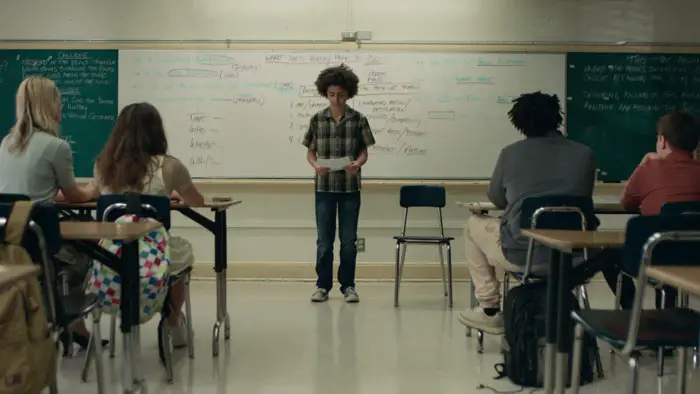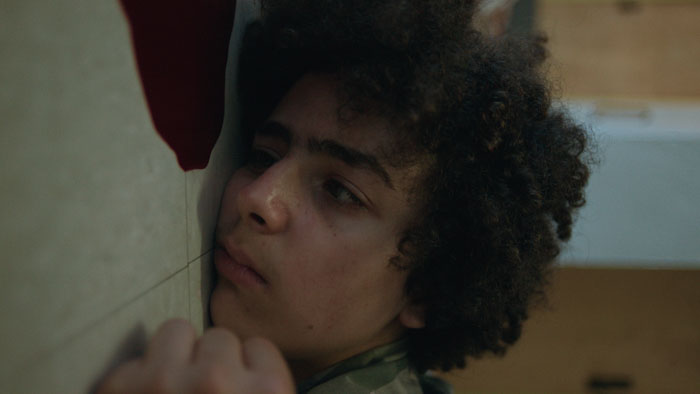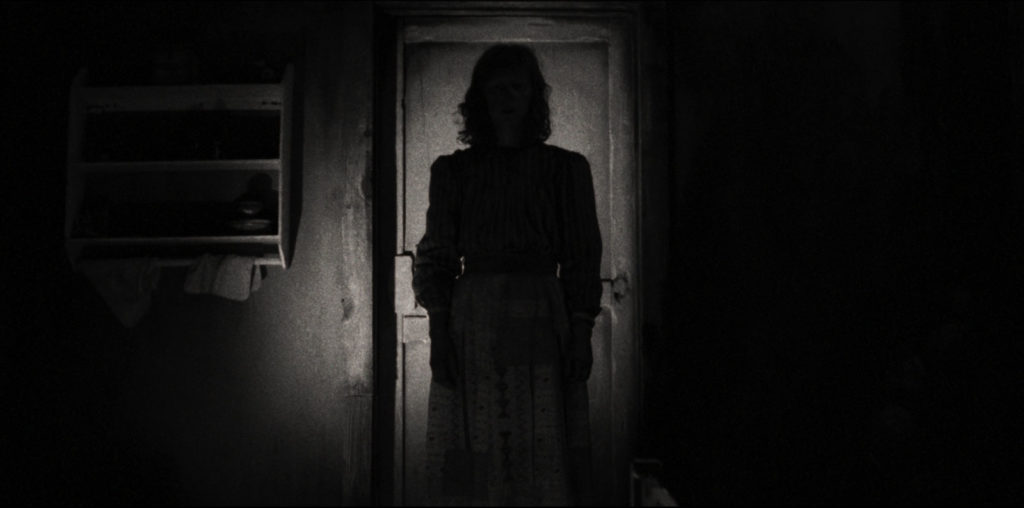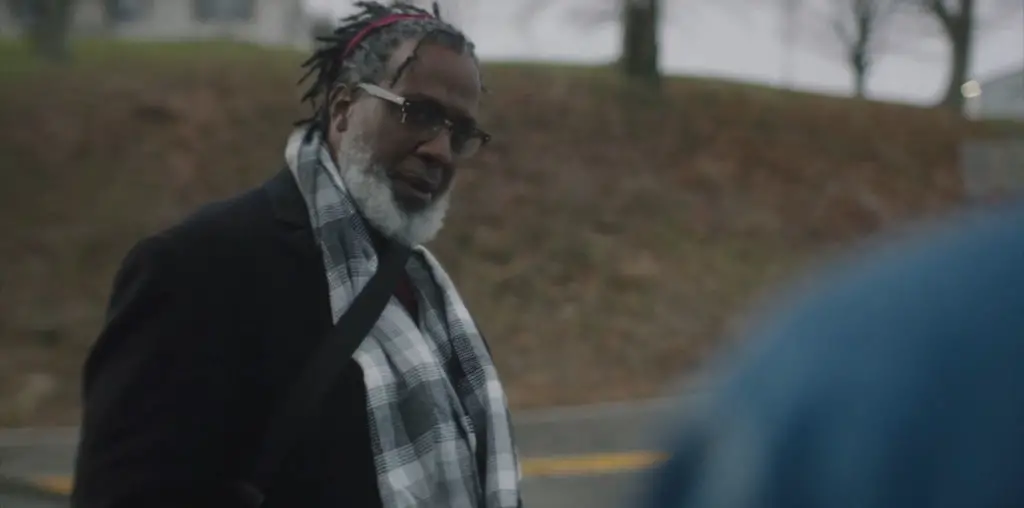
The Man of the Harvest is a short avant-garde film about the unnerving psychology behind school shootings. Directed and written by Luther Clayton and Orion Eshel, it explores deep themes of childhood, innocence, friendship, violence, and mortality. The movie reflects on the dynamics of personal relationships, such as the comforting embrace of a mother’s love and the powerful bond of close friends.
Harvest revolves around two young boys, probably between the ages of ten and fourteen. Their names are Kevin (Elisha Henig) and Owen (Gabriel Bateman). The name of the film comes from a poem that Kevin reads to his school classroom, titled The Man of the Harvest. Hence the movie’s name.

“Kevin…literally stares his mortality in the face—in a reflection of a pool of blood.”
The film’s structure is an interplay between Edenic scenes of childish games and the unbearable tragedy of an armed school intrusion. The camera’s visual storytelling does an excellent job of slowly unveiling the unseen tragedy in a subtle and clever way from an innocent and puerile perspective. Throughout the film’s progression, we gradually learn that a school shooting has taken place. Owen and his mother are devastated by this horrific event. The young boy’s grief is only compounded when he is unable to find his friend Kevin amid the chaos. While it is strongly implied that Kevin survives the shooting, he only does so after literally staring his mortality in the face—in a reflection of a pool of blood.
Well-written, well-edited, and well-acted, Harvest is a thoughtful little meditation about some very serious subjects. It is impossible to turn a school shooting into an enjoyable watching experience, but this autumn-themed story speaks volumes in terms of its powerful psychological explorations. Although slightly pretentious and self-consciously experimental, Clayton and Eshel have done well with this deceptively dark and foreboding fifteen-minute piece.

"…explores deep themes of childhood, innocence, friendship, violence, and mortality."


